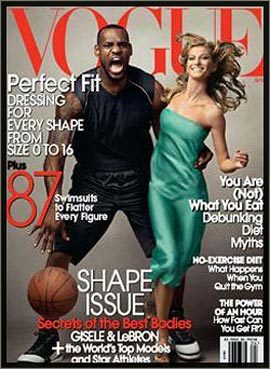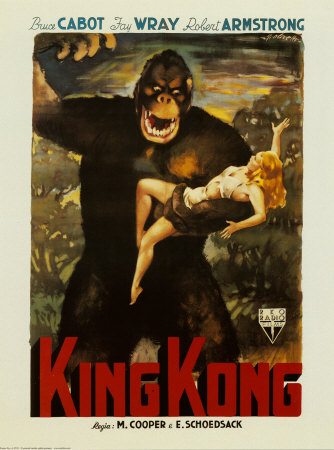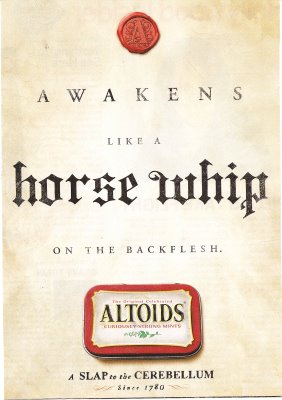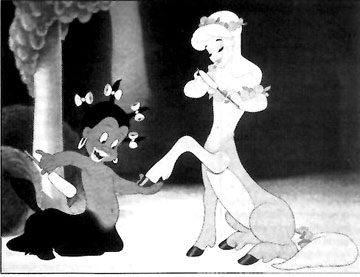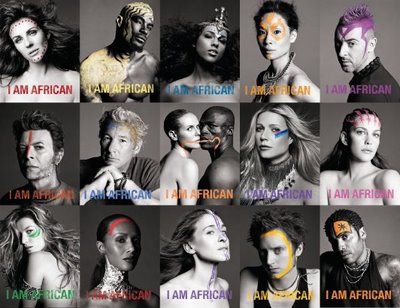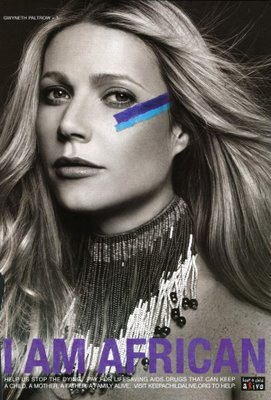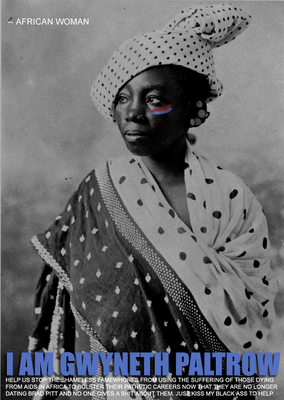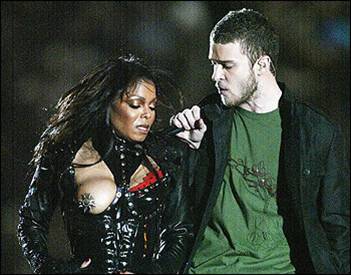This is a cover of Vogue featuring LeBron James and Gisele Bundchen. Notice the postures: LeBron as the hulking, angry black man, and Gisele as arm candy. Apparently this issue has a whole section on “the World’s Top Models and Star Athletes.” Hmmm, I wonder what the gender breakdown is?
Notice also the way in which the image reproduces the famous King Kong imagery:
Here is a link to an MSNBC segment on the cover.
Thanks to Carmela Z. for sending this image along!
NEW (Jan ’10)! Ruth D’R. and a reader-who-wishes-to-remain-anonymous sent us this (highly photoshopped) photo of Kanye West and Lady Gaga, one of the images in her “Fame Monster” CD liner notes. Some argue that it, too, reproduces the racialized King Kong imagery in which a black man (threatens to) ravage a white woman:
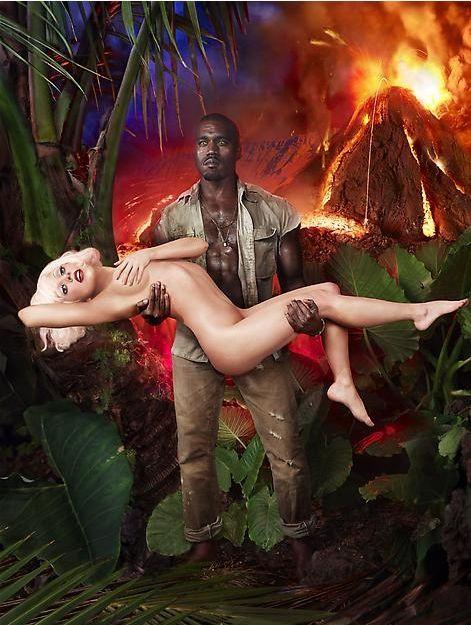
Some may think that this is a reach. But I think her nudity, plus the symbols of primitivity (the plants, the erupting volcano, and even the khakis) clearly invoke animalism.

